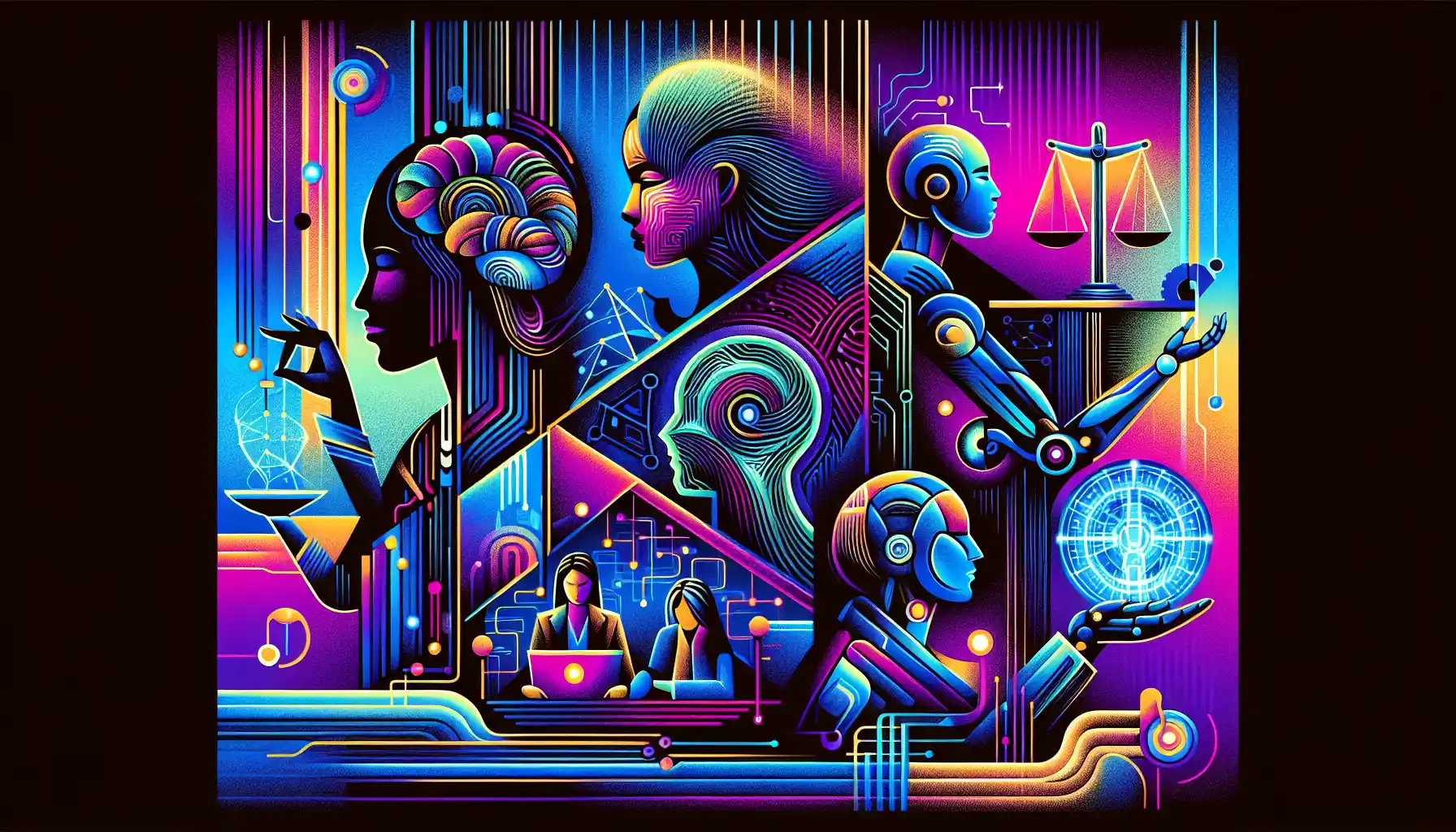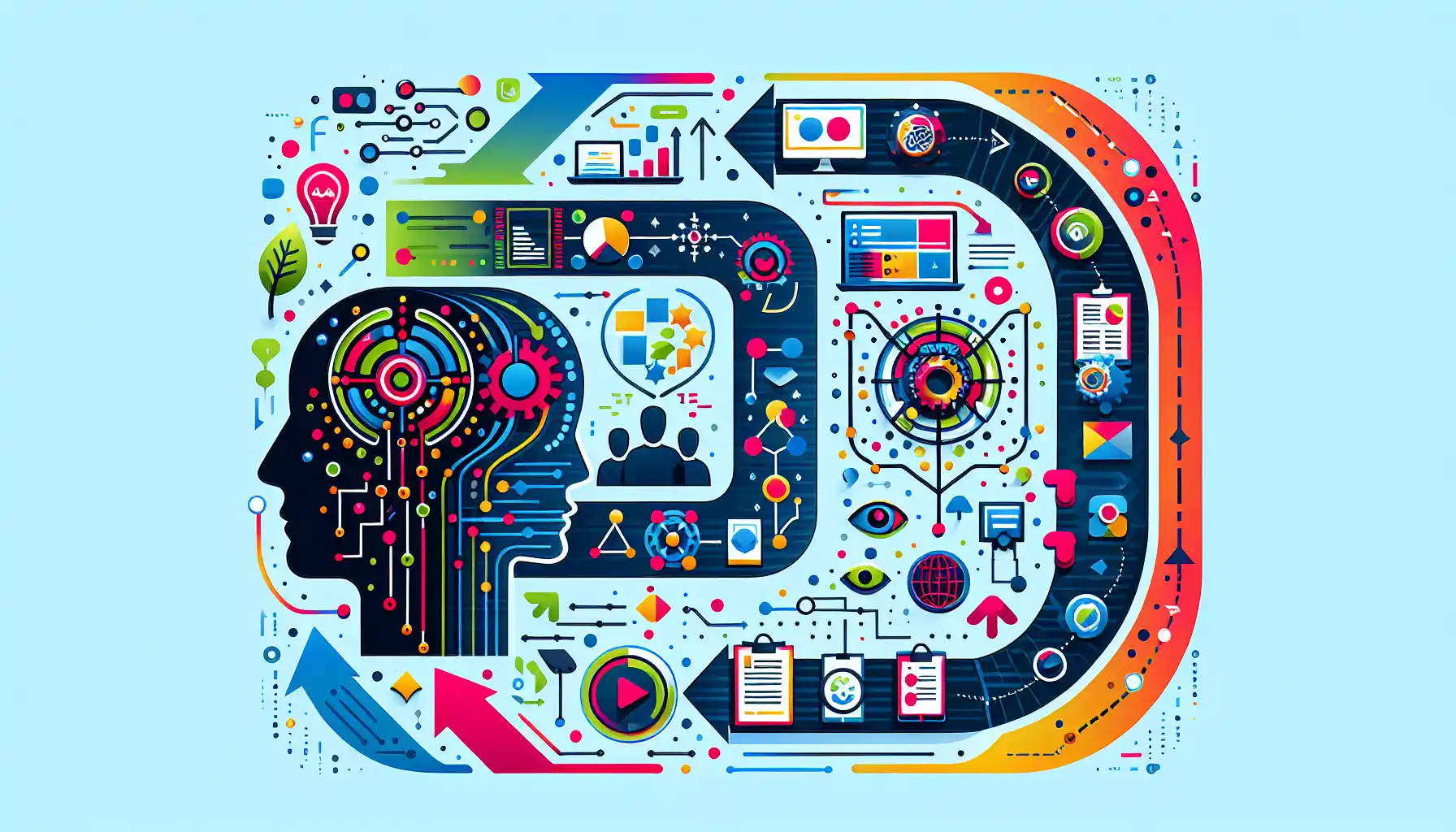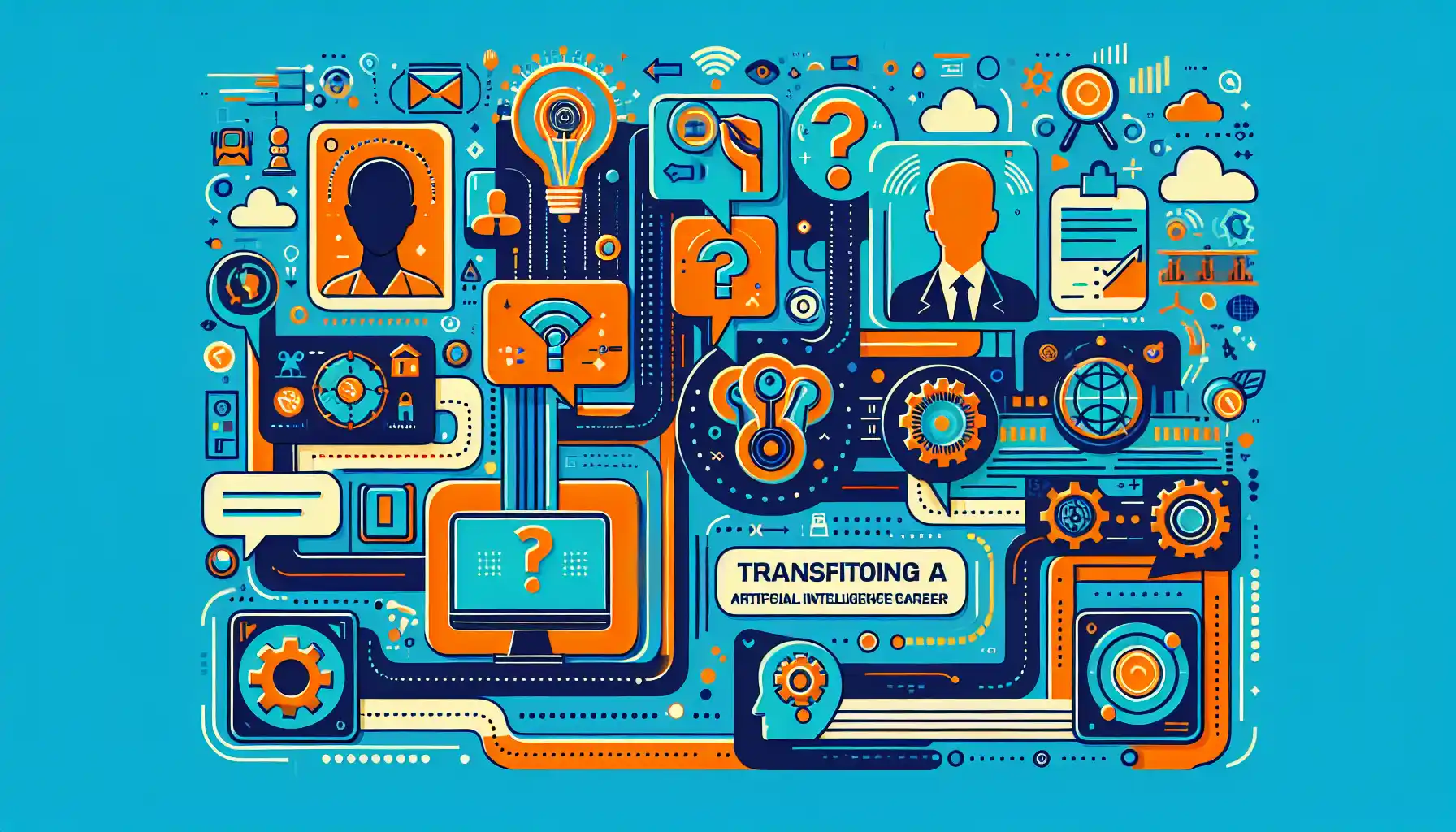Are you a professional seeking a more advanced, exciting, and lucrative career? Are you a student or recent graduate wanting to jump into a hot field that is only going to get hotter? Have you been considering diving into the world of Artificial Intelligence, but you’re not sure how to go about it?
Well, you’re in luck! You’ve come to the right place.
To make a career transition to AI, you must have a solid foundation in math, particularly in calculus, linear algebra, probability, and statistics. You also need a strong grasp of programming languages such as Python, Java, C++, or C#. You should also have experience working with big data, machine learning, and neural networks.
As the demand for AI professionals continues to grow, so does the variety of paths available for making the transition into this rewarding and challenging field.
Let’s delve into this exciting world of AI careers, and discuss what you need to know to bridge the gap and make your move!
What is Artificial Intelligence?

Artificial Intelligence (AI), a powerful, cutting-edge field of computer science, is transforming the way we live, work, and play. This dynamic discipline involves creating machines that can perform tasks requiring human intelligence, like problem-solving, understanding language, recognizing patterns, and learning from experience.
AI technologies include machine learning, which involves training algorithms to recognize patterns and make decisions based on data, and deep learning, a subset of machine learning that uses neural networks to mimic the human brain.
These advanced systems are being used in a wide range of applications, from virtual assistants like Siri and Alexa to self-driving cars, personalized medical treatments, and fraud detection systems.
Career Opportunities in Artificial Intelligence

Now, let’s discuss the different career opportunities in the field of AI.
The possibilities are virtually endless, and there’s something for everyone, whether you’re a seasoned professional or just starting your journey.
- Machine Learning Engineer: In this role, you will design, build, and deploy machine learning models and algorithms. You’ll need a strong background in programming, data analysis, and statistics, as well as a deep understanding of machine learning techniques.
- Data Scientist: Data scientists analyze large data sets to identify trends, patterns, and insights. This role requires expertise in statistics, programming, and data visualization, as well as knowledge of machine learning and AI.
- Natural Language Processing Engineer: NLP engineers develop systems that can understand and generate human language. You’ll need a strong background in linguistics, machine learning, and programming, as well as knowledge of text analysis and language models.
- Computer Vision Engineer: In this role, you will work on developing systems that can understand and interpret visual information from images or videos. You’ll need expertise in image processing, machine learning, and deep learning, as well as strong programming skills.
- AI Research Scientist: Research scientists work on advancing the field of AI by developing new algorithms, techniques, and models. This role requires a deep understanding of machine learning, statistics, and computer science, as well as strong analytical and problem-solving skills.
- AI Ethicist: Ethicists work on ensuring that AI systems are developed and used in a way that is ethical and fair. This role requires a strong background in philosophy, ethics, and technology, as well as an understanding of the social and ethical implications of AI.
- AI Product Manager: Product managers are responsible for defining the vision, strategy, and roadmap for AI products and services. This role requires a deep understanding of AI technologies, as well as strong communication, leadership, and problem-solving skills.
- AI Consultant: AI consultants work with organizations to help them understand how AI can be applied to their business. This role requires expertise in AI technologies, as well as strong communication, problem-solving, and project management skills.
Steps to Transition to a Career in Artificial Intelligence

If you are looking to transition to a career in AI, you are in luck. Here are the steps you need to follow to make the transition:
1. Self-Assessment
Before you dive into the world of AI, it’s essential to assess your current skills, strengths, and interests.
Take a look at your educational background, professional experience, and personal projects. What are your strengths? What areas do you need to improve on? What aspects of AI are you most passionate about?
Understanding where you stand will help you chart a clear path for your transition.
2. Gain Fundamental Skills
Next, you’ll need to brush up on your programming, math, and data analysis skills. Here’s a list of fundamental skills you need to develop:
- Python: Python is the most popular programming language in the AI field. If you don’t already know it, now is the time to learn it.
- Mathematics: Math is the foundation of AI. Make sure you have a strong grasp of calculus, linear algebra, and probability.
- Statistics: Statistics plays a crucial role in data analysis. Familiarize yourself with basic statistical concepts and techniques.
- Data Analysis: Get comfortable working with large data sets. Learn how to clean, preprocess, and visualize data.
- Algorithms: Familiarize yourself with common AI algorithms such as regression, clustering, and classification.
- Machine Learning: Once you’ve built a solid foundation in the above areas, start learning about machine learning algorithms and techniques.
- Deep Learning: Deep learning is a subset of machine learning that focuses on training neural networks. This is where you will need to focus your efforts to work in the cutting edge of AI.
- Software Engineering: A good understanding of software engineering practices is essential. This will help you write clean, maintainable, and efficient code.
3. Gain Industry-Specific Knowledge
In addition to the fundamental skills, you need to develop, it’s also important to gain industry-specific knowledge.
Here are some steps you can take to do that:
- Take Online Courses: There are many excellent AI and machine learning courses available online. Platforms like Coursera, Udacity, and edX offer a wide range of courses on various AI topics.
- Work on Projects: Once you’ve acquired the necessary skills, start working on AI projects. This will help you apply what you’ve learned and build a portfolio.
- Participate in Competitions: Join AI competitions such as Kaggle. This will give you the opportunity to work on real-world AI problems and learn from others in the field.
- Read Research Papers: Stay up to date with the latest AI research by reading research papers. This will help you understand current trends and developments in the field.
- Network: Join AI communities, attend conferences, and connect with professionals in the field. Networking is a great way to learn from others and find opportunities.
4. Create a Portfolio
A strong portfolio is essential for demonstrating your AI skills to potential employers. Make sure to include your best projects, research, and any contributions you have made to the AI community. You can also showcase your portfolio on platforms like GitHub or your personal website.
5. Tailor Your Resume
When applying for AI roles, make sure your resume is tailored to the position you are applying for. Highlight your AI-related skills and experience, and quantify your achievements whenever possible.
6. Prepare for Interviews
Once you start getting interviews, make sure to prepare thoroughly. Review common AI interview questions, and practice your problem-solving and communication skills. Additionally, be prepared to discuss your AI projects and portfolio in detail.
7. Keep Learning and Growing
The field of AI is constantly evolving, so it’s important to keep learning and growing. Stay up to date with the latest AI research, tools, and techniques. Consider pursuing advanced degrees or certifications to further your knowledge and credibility in the field.
Now that we’ve covered the basics, let’s explore some common questions and concerns you might have as you embark on your journey into the exciting world of AI!
Frequently Asked Questions

1. How Can I Learn AI if I Have No Experience?
You can start learning AI with no prior experience. Begin by learning the basics of Python and then move on to machine learning and deep learning concepts.
There are many free and paid online courses available that can help you build a solid foundation in AI. You can also join AI communities to learn from others and get help when needed.
2. What Are the Steps to Become an AI Expert?
To become an AI expert, you will need to follow the steps we have outlined in this article. Some key points to remember include:
- Build a Strong Foundation: Start with the basics and build a strong foundation in programming, math, and data analysis.
- Gain Industry-Specific Knowledge: After acquiring the fundamental skills, gain industry-specific knowledge by working on AI projects, participating in competitions, and reading research papers.
- Create a Portfolio: Showcase your skills and knowledge by creating a strong portfolio.
- Keep Learning: The field of AI is constantly evolving, so it’s important to keep learning and stay up to date with the latest advancements.
3. Can I Transition to a Career in AI Without a Degree?
Yes, it is possible to transition to a career in AI without a degree. Many successful AI professionals have learned the necessary skills through online courses, self-study, and practical experience.
However, having a degree in a related field can certainly be an advantage when applying for AI roles. If you don’t have a degree, focus on building a strong portfolio and gaining practical experience to demonstrate your skills to potential employers.
4. What Are the Most Important Skills for an AI Job?
Some of the most important skills for an AI job include:
- Programming: Strong programming skills, particularly in Python and R.
- Math: A solid understanding of mathematics, especially calculus, linear algebra, and probability.
- Data Analysis: Proficiency in data analysis and data visualization.
- Machine Learning and Deep Learning: Knowledge of machine learning algorithms and techniques, as well as experience working with deep learning frameworks like TensorFlow and PyTorch.
- Software Development: Familiarity with software development practices and tools.
5. How Can I Make a Career Transition to AI?
To make a career transition to AI, start by assessing your current skills and knowledge. Identify the gaps in your skillset and work on building the necessary skills.
Join AI communities and network with professionals in the field. Build a strong portfolio by working on AI projects and gaining practical experience.
When you feel confident in your skills, start applying for AI roles and be prepared to showcase your portfolio and knowledge in interviews.
Ready to take the leap into the world of Artificial Intelligence? We’ve covered a lot of ground, and we hope you’re feeling more confident and excited about the opportunities that lie ahead. The future is bright, and AI is at the heart of it!
Final Thoughts

We have covered the fundamental skills you need to transition to a career in AI. We have also discussed the various career opportunities that are available to you.
We’ve outlined the steps you need to follow to make this transition. While it’s a challenging journey, the rewards of a career in AI are boundless.
Whether you’re a recent graduate, a seasoned professional, or someone looking for a change, AI offers a wide range of opportunities and the chance to be at the forefront of a transformative field.
So, take the first step today and start your journey into the exciting world of Artificial Intelligence!
Frequently Asked Questions

What skills do I need to transition to a career in artificial intelligence?
To transition to a career in artificial intelligence, you will need to have a strong background in math, particularly in calculus, linear algebra, probability, and statistics. You will also need a solid understanding of programming languages such as Python, Java, C++, or C#. Additionally, you should have experience working with big data, machine learning, and neural networks.
How do I gain practical experience in artificial intelligence?
One way to gain practical experience in artificial intelligence is to work on projects related to the field. You can find open-source projects online and contribute to them. You can also create your own projects using datasets available on platforms like Kaggle. Additionally, you can look for internships or entry-level positions in companies that are working on artificial intelligence technologies.
What are the career opportunities in artificial intelligence?
Artificial intelligence offers a wide range of career opportunities. Some common roles in the field include data scientist, machine learning engineer, AI research scientist, and natural language processing engineer. These roles typically involve working with large datasets, developing and training machine learning models, and researching and implementing cutting-edge AI techniques.
Is it possible to transition to a career in AI without a degree?
Yes, it is possible to transition to a career in artificial intelligence without a degree. Many professionals in the field have gained the necessary skills and experience through self-study, online courses, and practical work. However, having a degree in a related field can be an advantage when applying for AI roles, as it demonstrates a strong foundation in the necessary technical skills and knowledge.







